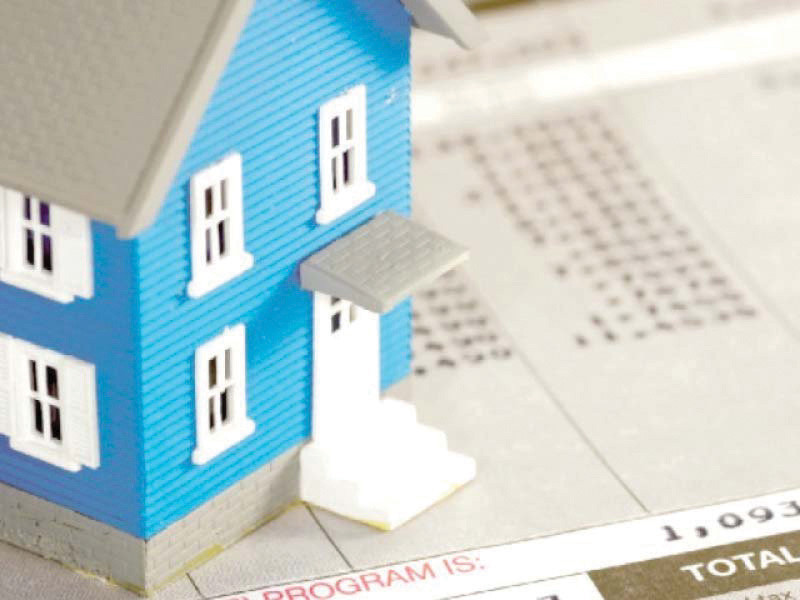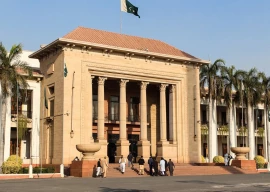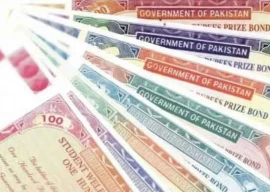
The National Assembly Standing Committee on Finance on Tuesday delayed the approval of an amendment bill which proposed a ban on the purchase of properties without upfront disclosure of the source of the money for buying the asset.
The delay in the approval of the Tax Laws Amendment Bill provided a major relief to the realty sector that could now undertake property transactions without the requirement of upfront disclosure of the source of the purchase.
The committee decision came on the recommendation of a sub-committee. As a result, transactions such as buying a car or investing in the stock market could also be undertaken without upfront disclosing the source of the purchases.
Headed by Syed Naveed Qamar of the Pakistan Peoples Party (PPP), the committee adopted a report of its sub-committee, which had recommended "deferring the proposed new section 114C until the Federal Board of Revenue (FBR) finalised the necessary technological changes in its online systems and applications".
The government had introduced the Tax Laws Amendment Bill in the National Assembly to ban economic transactions by the ineligible persons – the ones who do not have sufficient declared cash equivalent resources to buy property.
Bilal Kayani of the Pakistan Muslim League-Nawaz (PML-N) chaired the sub-committee meeting, which proposed a number of amendments to the bill, including deferment of the immediate implementation of the new clause, regarding the restrictions on the property transactions.
According to the proposed legal amendment, a person cannot buy a property until the assets declared in his last year's tax returns are sufficient for the purchase or the person will submit a new statement to disclose the source of buying the property. The FBR has not yet developed a real time safe technological solution where the buyer is required to file the declaration.
"We feel that section 114C should not be approved by the Standing Committee until the technological changes are made and a demonstration is given to the committee about its accuracy and effectiveness," said Kayani.
The committee adopted the sub-committee report and deferred the matter till June. It gave two-month for the development of the software to the FBR. "It seems that there is a consensus to give relief to the real estate sector," FBR Chairman Rashid Langrial said.
Langrial had conceived the new proposal after it emerged that the FBR did not have the post-transaction capacity to verify the source of buying the asset. The post-transaction success rate after the purchase of the property was only 3%, according to the FBR.
Kayani said that the Section 114C was an additional layer of declaration and the FBR still had the legal authority to verify those assets, once the purchaser submitted its income and wealth statement every year.
The Minister of State for Finance Ali Pervaiz Malik said that the non-filers were used as revenue spinner sources. The minister agreed that the FBR did not take any action despite having the entire data of their transactions.
People have been filing the tax returns just for the sake of undertaking a property transaction and the FBR seemed satisfied with only getting an extra amount of taxation instead of going after them for not fully paying their taxes on actual incomes.
"By blocking the economic transactions, the government will be adversely affecting the economy and the Section 114C is a completely flawed legislation, said Nafeesa Shah of the PPP
It was also proposed that the economic transactions by poor; lower-middle income group and the first time buyers of a property should also be exempted from upfront questioning.
The committee did not propose a certain limit of exemption threshold for not filing the upfront statement of the source of purchase. It recommended that the power to determine such exemption threshold should rest with the federal government, instead of the FBR.
"The federal government may determine the value threshold for transactions affected by this restriction to ensure that property transactions conducted by common citizens and the lower- and middle-income classparticularly first-time property buyers or those purchasing their primary residential property-are not impacted," according to the committee's decision.
It was also decided that even if Section 114C was passed in the budget; it would not come into effect until the exemption value was notified by the federal government.
The committee also amended the clause related to the immediate family members and introduced the definition of dependent children instead of using the terms son and daughter.
The standing committee expanded the definition of cash equivalent assets by including cash denomination, local and foreign currency, fair market value of gold, net realisable value of stocks, bonds, receivables or any other cash equivalent assets.
It also decided to introduce the option of barter transactions, the use of capital assets for the purchase of property as part of assets that could be used to buy the property.
The non-resident Pakistanis and the listed companies will be exempted from filing the additional information disclosure, according to the new proposed amendment. "The committee's decision will exclude 95% people from the purview of the new amendments and it means that there can never be true documentation in Pakistan," said MNA Jawad Hanif Khan.











1724919650-0/Untitled-design-(5)1724919650-0-270x192.webp)












COMMENTS
Comments are moderated and generally will be posted if they are on-topic and not abusive.
For more information, please see our Comments FAQ